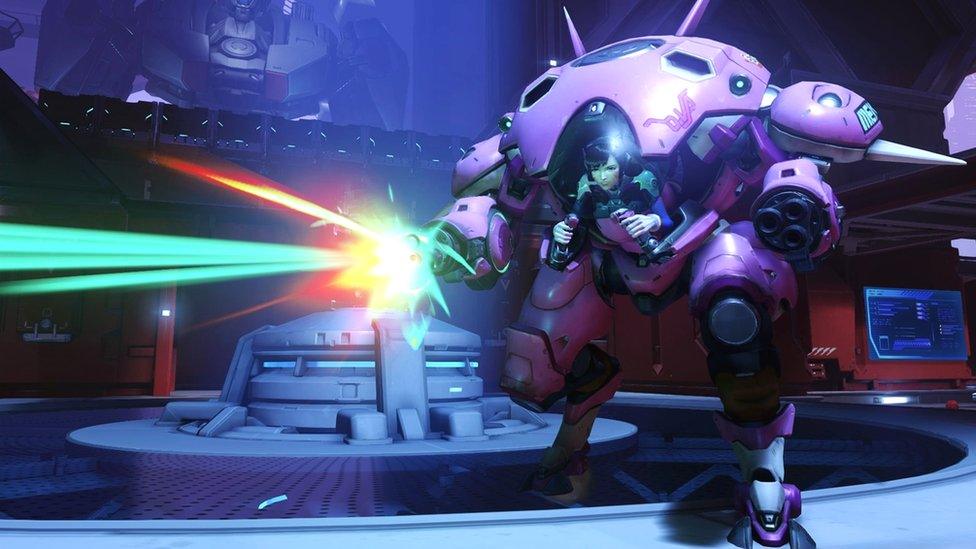Overwatch 'cheat-maker' told to pay $8.6m to Blizzard
- Published

Blizzard acted to ensure gamers did not gain unfair advantages within Overwatch and other titles
The developer of the hit video games World of Warcraft and Overwatch has successfully sued a company that sold "cheat" tools for its titles.
A German firm Bossland to pay $8.6m (拢6.8m) to Blizzard for 42,818 counts of copyright infringement.
Blizzard had argued that Bossland had reverse-engineered and otherwise altered its games without permission.
It follows related court rulings in the UK and Germany.
Bossland had attempted to have the US case dismissed, but did not defend itself in court, .
It also faces having to cover about $177,000 of legal costs.
"The Bossland hacks destroy the integrity of the Blizzard games, thereby alienating and frustrating legitimate players and diverting revenue from Blizzard to defendants," the US games developer had argued.
The tools included the ability to see other players' positions, health scores and other information from a distance within games.
The Zwickau-based firm's managing director said it did not accept the US court had jurisdiction over it, and that the judgement did not take into account that many of the licences it had sold had been "trials" at a fraction of the normal cost.
"We are discussing with our lawyers how to continue - if an appeal to the declined motion to dismiss is worth trying," Zwetan Letschew told the 大象传媒.
Bossland's website remains active and continues to advertise cheats for several Blizzard games, insisting "botting is not against any law".
Bossland continues to offer bot-based cheats for Blizzard and other developers' titles
However, UK visitors are blocked from access and are instead shown a message saying the sale of its software to "any person resident in the United Kingdom, constitutes an infringement of Blizzard's intellectual property rights and an inducement to players of Blizzard's games to breach their agreements with Blizzard".
One games industry analyst said the US games developer had a lot riding on its multiplayer titles remaining fair.
"If the cheats work then they fundamentally break the gameplay mechanics as it's impossible to balance these types of game as a consequence," commented Piers Harding-Rolls from IHS Technology.
"If you have a competitive game like Overwatch - which is starting to branch out into the e-sports playing-for-money scene - if cheats are being used it spoils the whole concept.
"And even outside the competitive scene, if casual games don't feel they are experiencing a level playing field then they can be turned off playing."
- Published26 October 2016
- Published22 May 2014
- Published5 July 2016